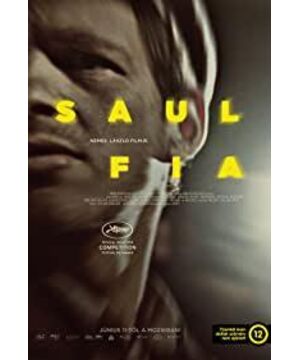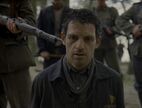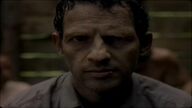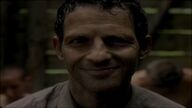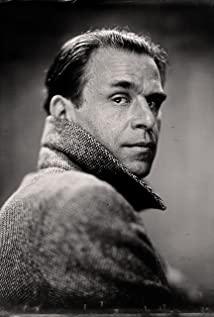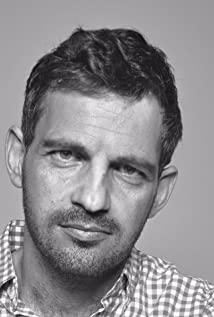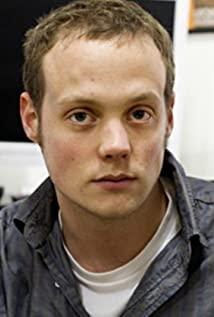Sol was the last man. Long shots follow him past those who are about to be killed, walk with him, walk with them into the locker room, into the gas chamber, into the dying struggles and screams. And he didn't respond. Pity, sympathy, and even the instinct to tremble at the miserable sight of life of the same kind was wiped cleanly. In this dead factory, in the eyes of a "qualified" worker, living people are just raw materials for processing into ashes. All the values that human civilization has endowed with life have vanished. When those values and the emotions, judgments, and rationality built on them are gone, what remains is the living dead—an indifferent husk numbed by fear and functioning solely on the instinct of survival.
Such "living" itself is absurd: seeing the mountain of corpses as nothing, turning a deaf ear to the tragic cry. In fact, Sol was not watching during the long slaughter at the beginning. Although his gaze carried a certain will to survive, it did not stop at anyone or anything. Until he saw the surviving boy. At this moment, the vision that was forcibly blanked by terror suddenly recovered. He began to see the child's face, heard his suffocation, and then watched as he was stabbed by medics. Then this resurgence of consciousness became unstoppable. He remembered that the deceased should be buried in the ground, they should be sent off religiously, and the rabbi should be present... That is the concept and ritual of death in the normal civilized world, not the "flesh to ashes" assembly line rules in this factory .
What happened next was actually a stumbling resistance against cruelty and absurdity by the only remaining broken "common sense". Unfortunately due to the distortion of the black hole, this resistance is doomed to be beyond recognition. Sol did find rabbis, and three (or two and a half). However, they were all in a state of being pulled out of their spirits by the terror of near death, and could no longer understand and respond to his request. He himself was tossing around in this paranoid state, seriously harming a group of fellow sufferers. It was not reason that drove him to act, but the only vague sense of self-will. Deprived of the few remaining sanity, it can no longer be bound, and the fiery massacre cannot be stopped. It even made him take off his prison uniform, almost swapping himself among the dead. Killings and burnings are routine here to keep participants at ease, while rabbis and funerals are illegal. A man who seeks them can only go into madness.
Although hand-held photography and close-up lenses create a sufficient sense of substitution, this "subjective perspective" also causes the audience to view other characters only from Sol's standpoint. The inmates who were preparing for the escape had to act as "inhumane" cannon fodder. The Nazi guards at all levels only had the same brutal scolding. So the most interesting scene is that night when the table is cleared. The commander of the concentration camp, like any factory manager who makes a production plan, estimated the efficiency and speed of killing, and asked his subordinates to work overtime to complete the "task", and also shouted for supper. These "murderers" apparently also lived in another world, an inhuman one that reversed all definitions of humanity and civilization. Years later, when they get out of here and return to the life of "common sense", they may become the old men in "Remember". Some just want to forget, some self-repent, and some secretly miss - after all, this is completely different from the ordinary and boring, peaceful and mediocre "normal world".
Of course, the escape of the victims was not blind and futile. That proves that their rationality is stronger than Sol. Compared with seeking spiritual comfort from the "common sense" of funerals, the efforts to escape from the inhuman land are undoubtedly more active. Although even if there is no "hold back" by Sol, in the unfamiliar wilderness, the probability of such a successful escape from prison is almost non-existent. This is why the director wanted to let Sol, who had failed the funeral hope, still follow them to the end-when the extroverted struggle is swallowed by the black hole and complete despair comes, people's reason and bottom line can only retreat to the heart. There, he woke up and remembered what the normal world was like, and he was resurrected.
Even if that is the last soul, the last man.
PS: In The Rise and Fall of the Third Reich, William Shayle quoted the materials of the Nuremberg Trial, and cited some companies that had made competitive bids to build hell, such as those provided by Tove & Sons, Corey Corporation, and Dier Factory. The crematorium, Turch-Stabenoff and Dagch supply two tons of cyanide per month. Since then, any economic theory that sanctifies free markets and entrepreneurs or believes that "efficiency = morality" can't wash my mind.
View more about Son of Saul reviews


